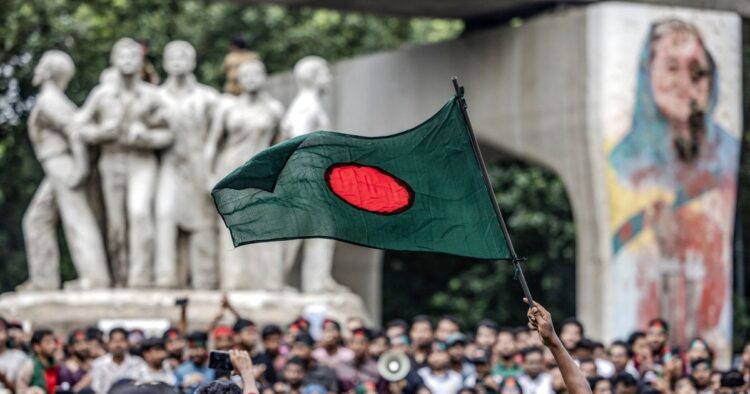In 2024, 55 years later, Bangladesh witnessed a similar student-led movement that dramatically altered its political landscape. Exactly today, fifty-six years ago, on January 20, 1969, the killing of student leader Amanullah Mohammad Asaduzzaman by the police transformed a relatively peaceful student movement into a massive uprising. This movement ultimately evolved into the war for independence, leading to the birth of Bangladesh.
Although Asad is not widely known, January 20 is observed in Bangladesh as “Shaheed Asad Dibosh”— “Day of Asad, the Martyr”. “Our country’s independence might have been delayed if Asad hadn’t sacrificed his life,” said his brother, Munir-uz-Zaman, former principal of Anondo Mohon College in Mymensingh.
The 1969 Mass Uprising: A Forgotten Chapter in History
The 1969 mass uprising in East Pakistan is often overlooked in Bangladesh’s historical narrative, according to Zaman. However, he argues that without this movement, the 1971 Liberation War might not have occurred.
At the time, only a few believed that the autocratic rule of the then-Pakistani president, Ayub Khan, could be challenged. Yet, student leaders like Asad were determined to resist and fight for their rights. Asad was a final-year MA student at Dhaka University’s Department of History and served as president of the Dhaka Hall unit of the East Pakistan Students Union, as well as its General Secretary.
Growing Discontent and Path to Independence
Following the Partition of India in 1947, Pakistan was formed as two separate regions—East and West—separated by 1,600 kilometers with India in between. By the 1960s, dissatisfaction in Bengali-speaking East Pakistan had grown due to economic inequality, poverty, and lack of political representation. While Ayub Khan’s policies contributed to industrial growth, they failed to improve the lives of ordinary people.
The economic disparity between the two regions widened, leading East Pakistani intellectuals to rethink their place in the national framework. The 1965 war with India further exposed East Pakistan’s vulnerability and highlighted the lack of Bengali representation in Pakistan’s civil service and central government.
To address these issues, Sheikh Mujibur Rahman, leader of the Awami League, introduced his six-point autonomy plan in 1966, calling for a federated structure between East and West Pakistan—a crucial step towards independence.
55 Years Later, A Similar Protest
In 2024, 55 years later, Bangladesh witnessed a similar student-led movement that dramatically altered its political landscape. The protests began in response to the Supreme Court’s decision to reinstate a 30% quota for government jobs reserved for descendants of freedom fighters, a move that many students perceived as limiting merit-based opportunities.
The government’s harsh response to these peaceful demonstrations further fueled public dissatisfaction, leading to widespread unrest.
Resignation of Prime Minister Sheikh Hasina
The escalating protests reached a critical point on August 5, 2024, when demonstrators marched to the Prime Minister’s residence, demanding her resignation. Facing mounting pressure, Prime Minister Sheikh Hasina resigned and fled the country. Following her departure, an interim government was established under the leadership of Nobel laureate Muhammad Yunus, with the support of the student movement.
Under the interim government, Bangladesh has initiated efforts to strengthen diplomatic and economic ties with Pakistan. Notably, restrictions requiring physical inspections of cargo from Pakistan have been lifted, and direct sea links, strained since the 1971 independence war, have been re-established. These measures signify a historic thawing of relations between the two nations.
Not only this, Bangladesh’s interim government has entirely overlooked the significance of the 1971 Liberation War, including the pivotal roles played by Sheikh Mujibur Rahman and the Indian Army. This indicates that, after decades of hardship, the nation finds itself regressing, attempting to reconcile with Pakistan, potentially facing a scenario reminiscent of the one it endured 56 years ago.

















Comments